Iranian intelligence is using new interrogation tactics on journalists reports Maziar Bahari who received an invitation to tea at an upmarket hotel I’m not supposed to tell you this but I met Mr Mohammadi. In fact I met three Mr Mohammadis in four...
CATEGORY: Magazine
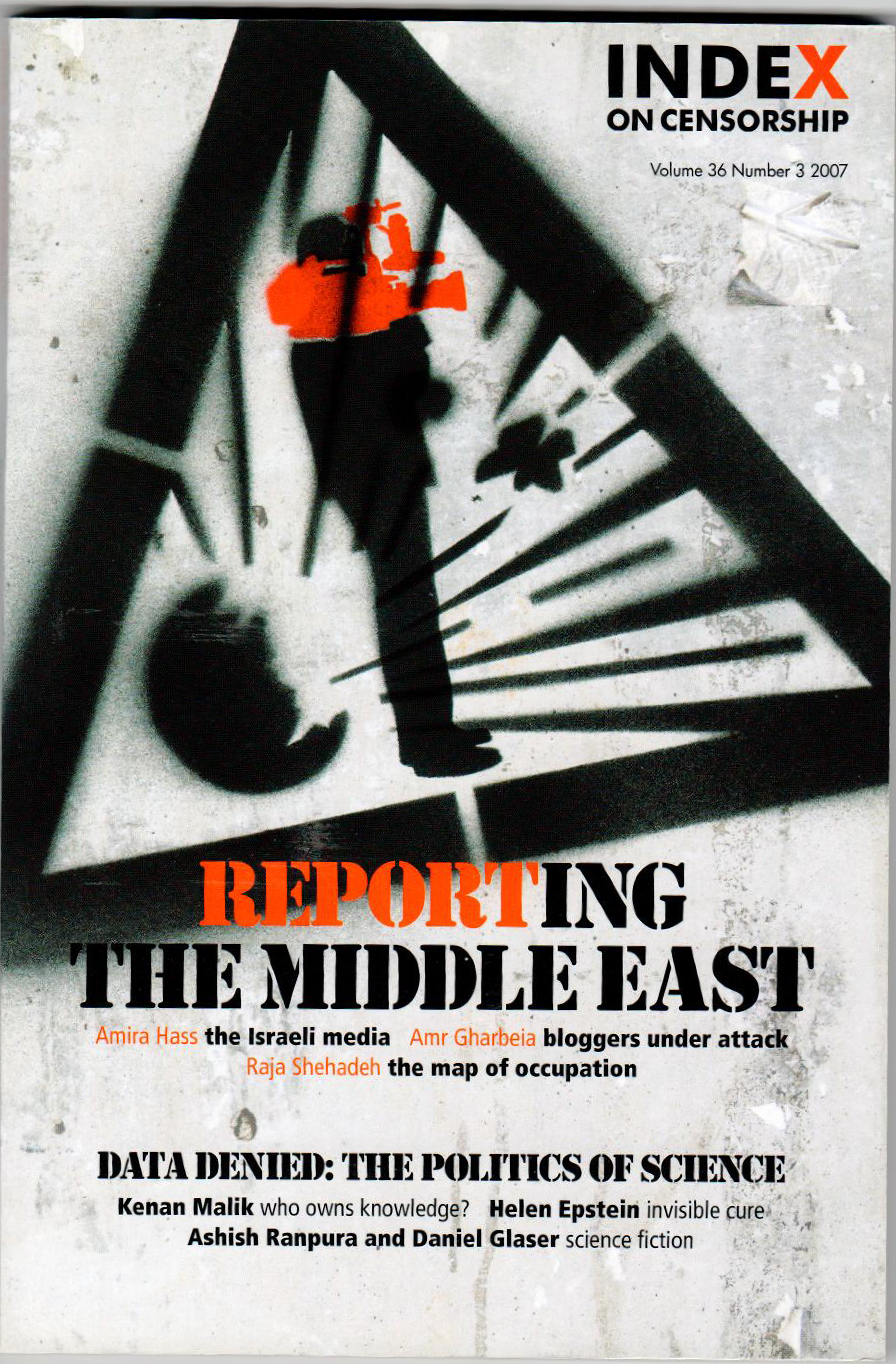
Reporting the Middle East
Index on Censorship magazine asks journalists and reporters from across the Middle East to assess the media, censorship and the costs of being on the front line.
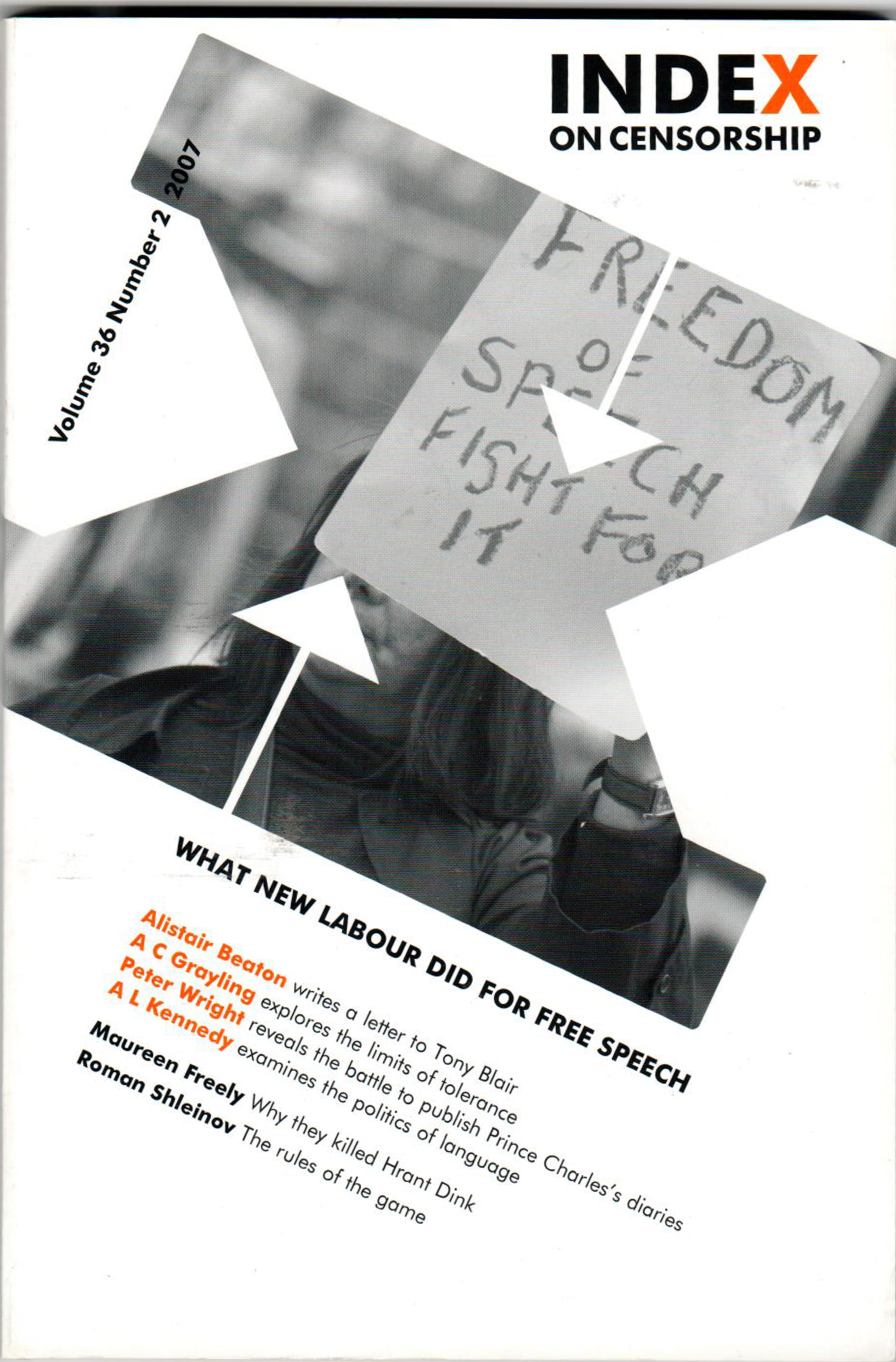
What New Labour did for free speech
Index takes a critical look at the health of free speech in the UK on New Labour’s tenth birthday in power. Has the UK become a less tolerant society?
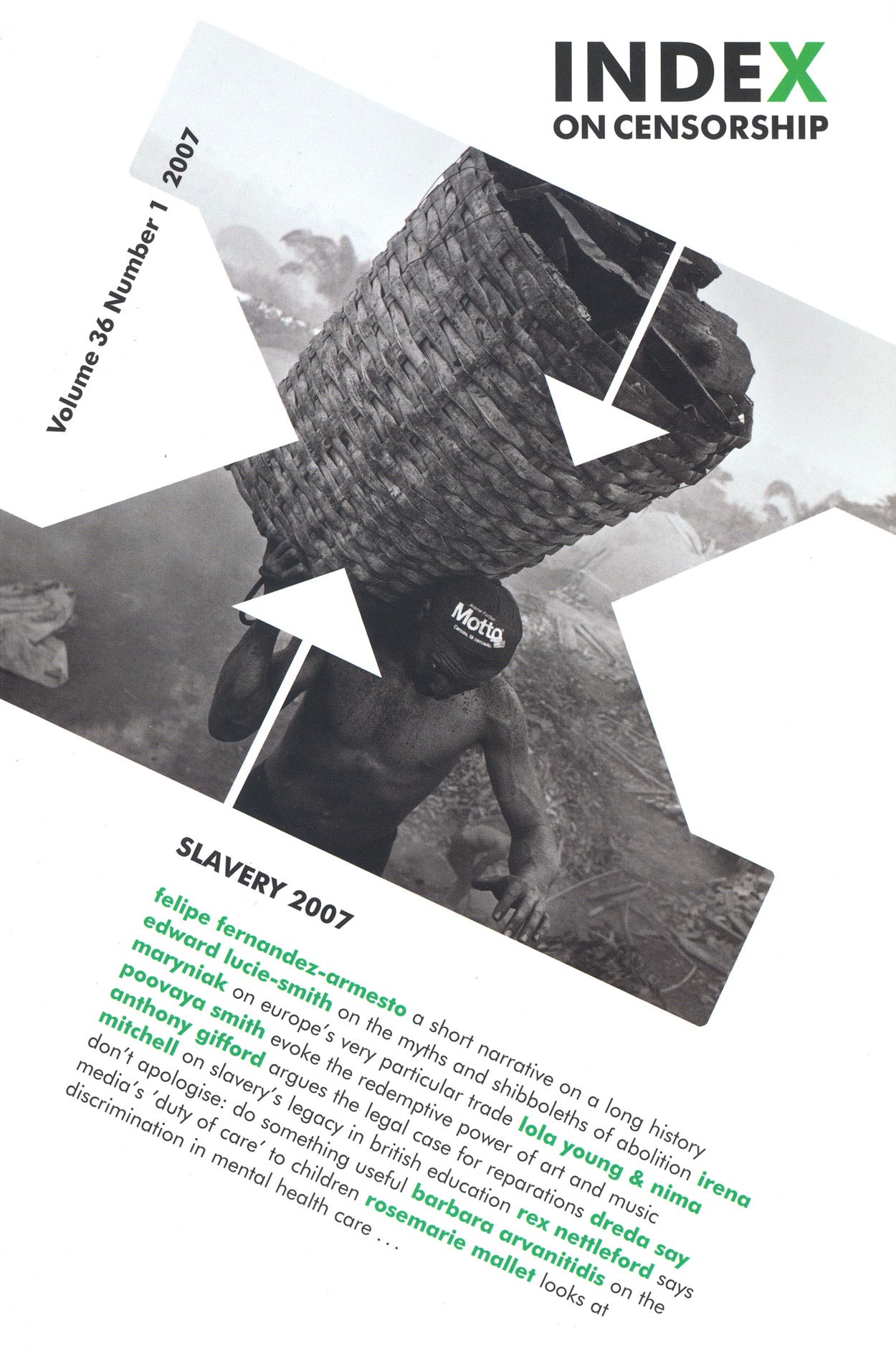
Slavery 2007
Index looks at the history, legacies, the present day traffic and the unfinished business of slavery 200 years after its abolition in British territories.
Is the right to free expression self evident?
[vc_row][vc_column][vc_column_text] The idea that being human and having rights are equivalent – that rights are inherent – is unintelligible in a Darwinian world. It is easily and often overlooked that when Thomas Jefferson asserted that life,...

Chernobyl’s children struggle to live
Today is a special day for me, a happy one, I am going to a meeting with a former oncology ‘prisoner’. It is almost 15 years since we last saw each other, since the time I photographed him in the Baraŭlany clinic, one of many seriously ill boys and...
The importance of giving offence
There are two questions I want to address here. In a plural society, should it be incumbent on people to refrain from giving offence to other groups and cultures? And should it be incumbent on governments to legislate to ensure that free speech is...
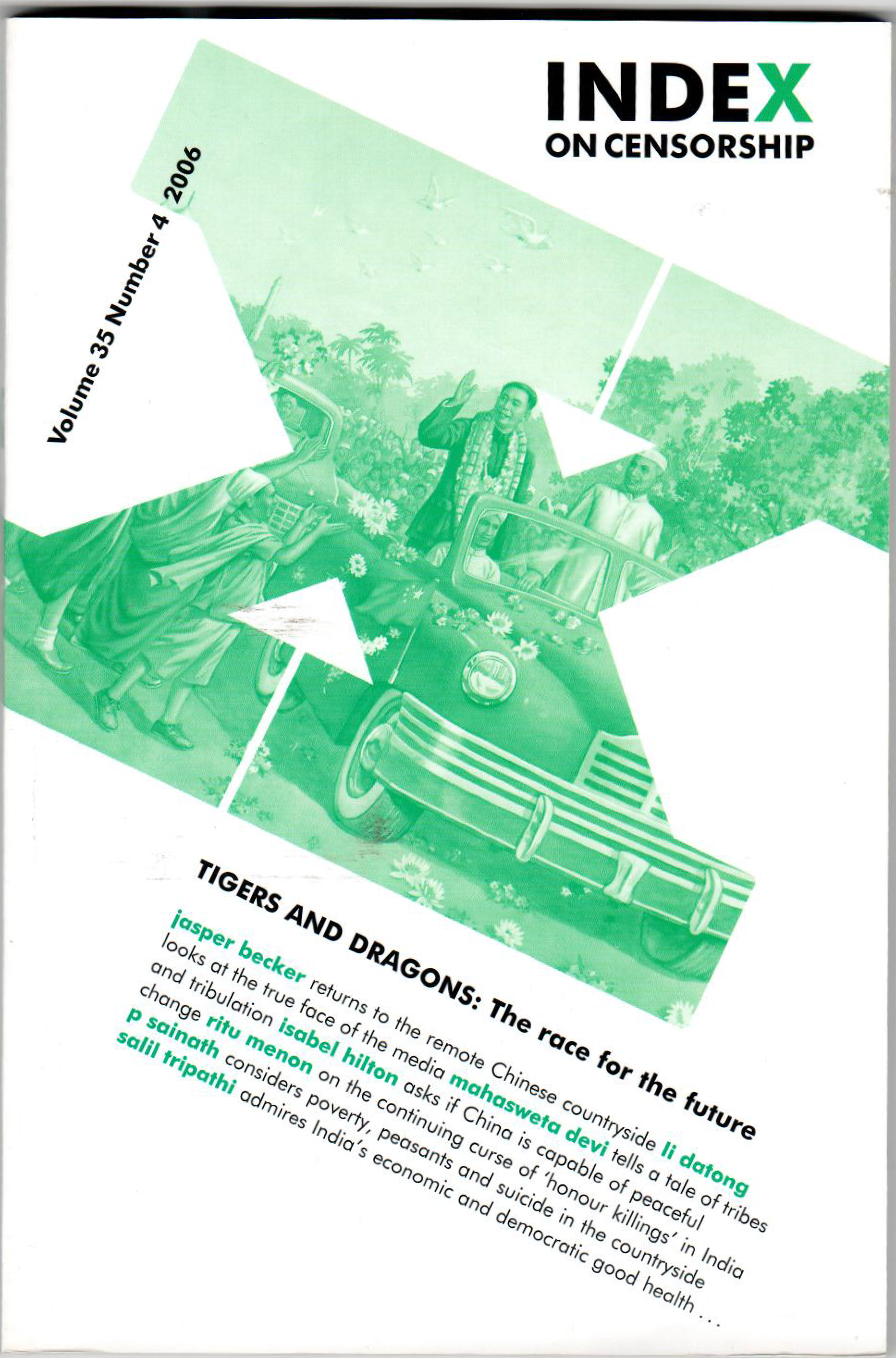
Tigers and dragons: The race for the future
Index explores China, economic superpower of the twenty-first century and a fast-tracking India. The race is on.
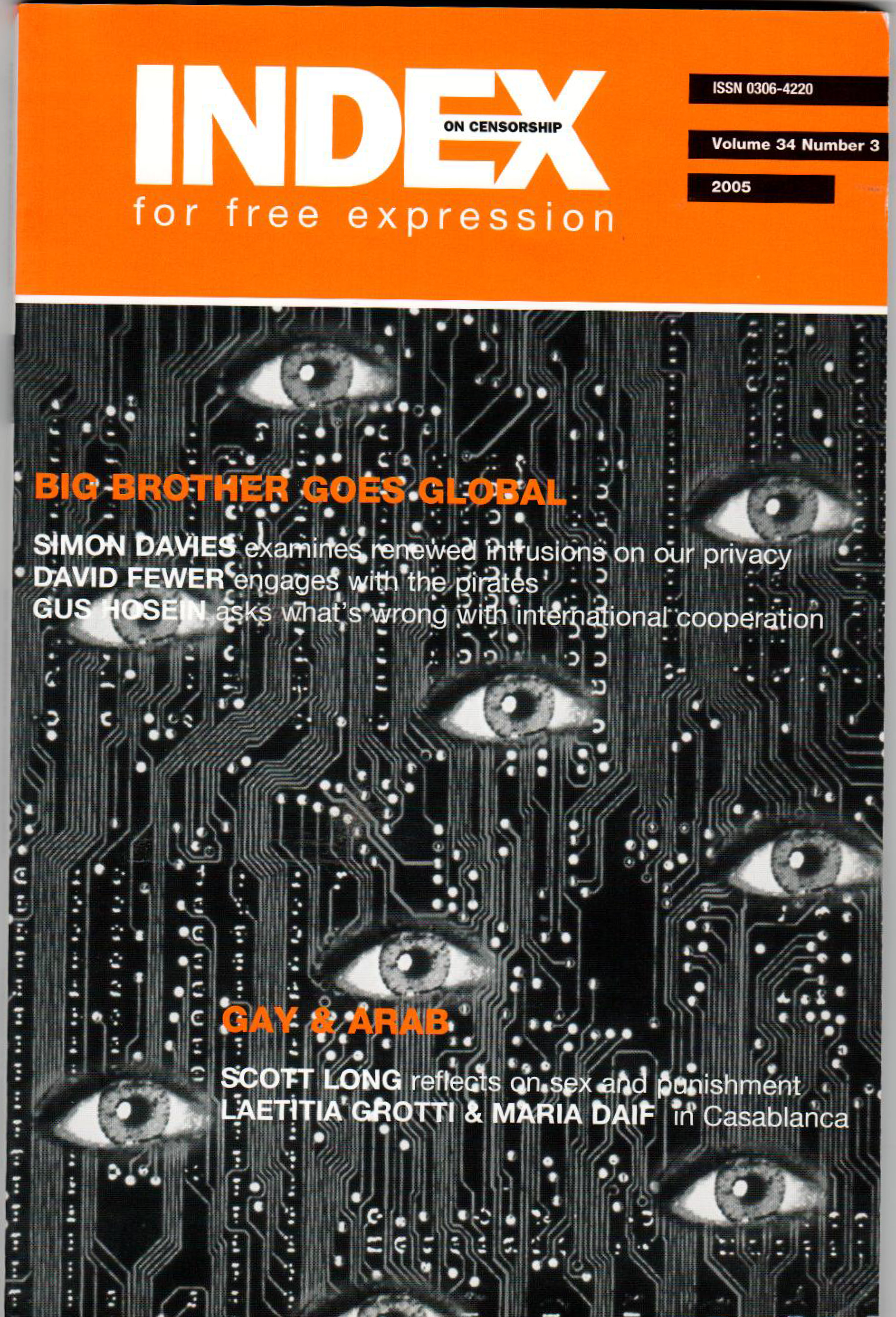
Big brother goes global
Index on Censorship magazine asks if the age of Big Brother has finally arrived on a scale unimagined except in our wildest dreams and nightmares.
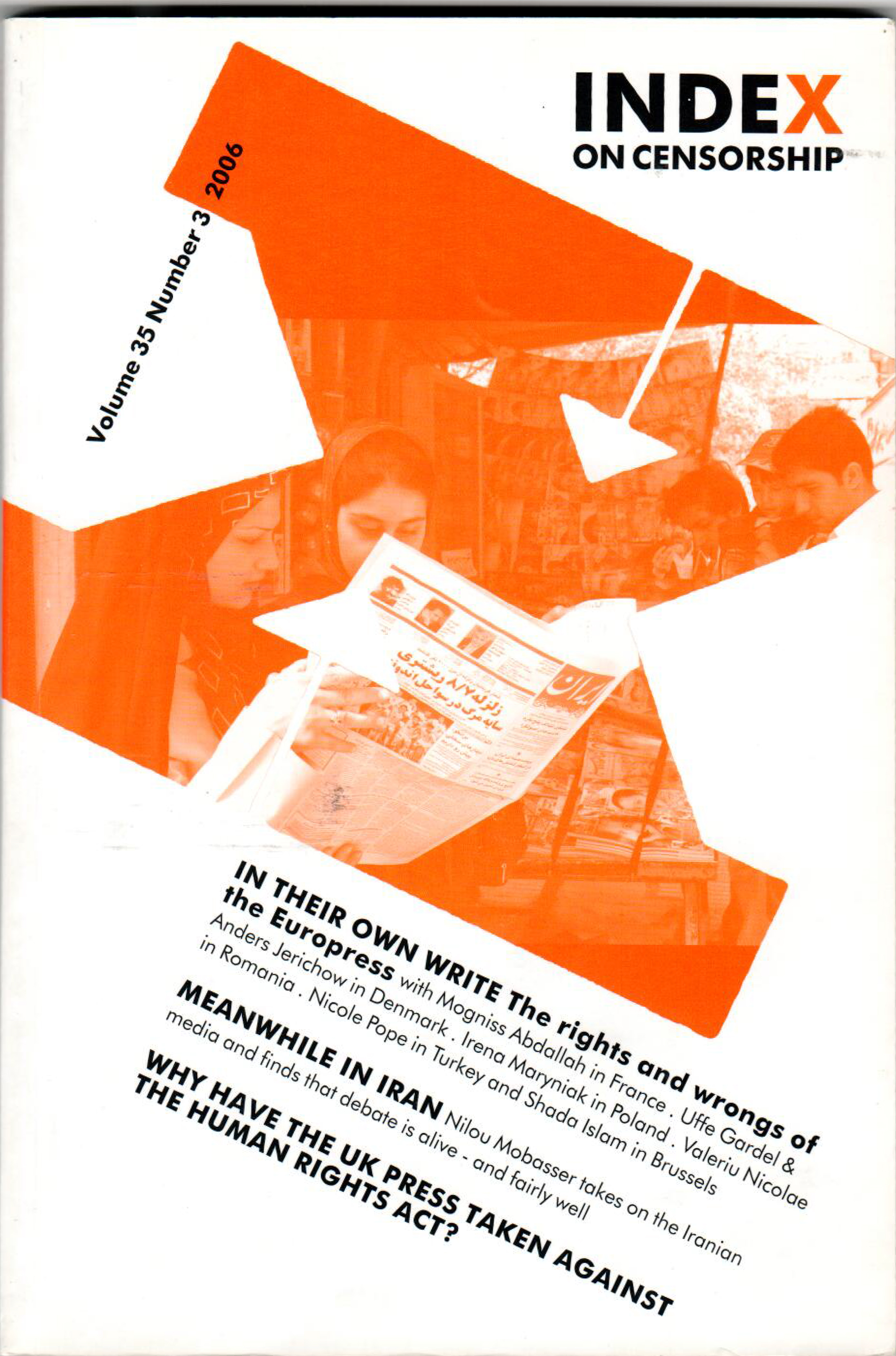
In their own write
Index on Censorship magazine takes a look at how the press in key countries deals with the hard issues that Europe confronts.
A quarterly journal set up in 1972, Index on Censorship magazine has published oppressed writers and refused to be silenced across hundreds of issues.
The brainchild of the poet Stephen Spender, and translator Michael Scammell, the magazine’s very first issue included a never-before-published poem, written while serving a sentence in a labour camp, by the Soviet dissident Aleksandr Solzhenitsyn, who went on to win a Nobel prize later that year.
The magazine continued to be a thorn in the side of Soviet censors, but its scope was far wider. From the beginning, Index declared its mission to stand up for free expression as a fundamental human right for people everywhere – it was particularly vocal in its coverage of the oppressive military regimes of southern Europe and Latin America but was also clear that freedom of expression was not only a problem in faraway dictatorships. The winter 1979 issue, for example, reported on a controversy in the United States in which the Public Broadcasting Service had heavily edited a documentary about racism in Britain and then gone to court attempting to prevent screenings of the original version. Learn more.

